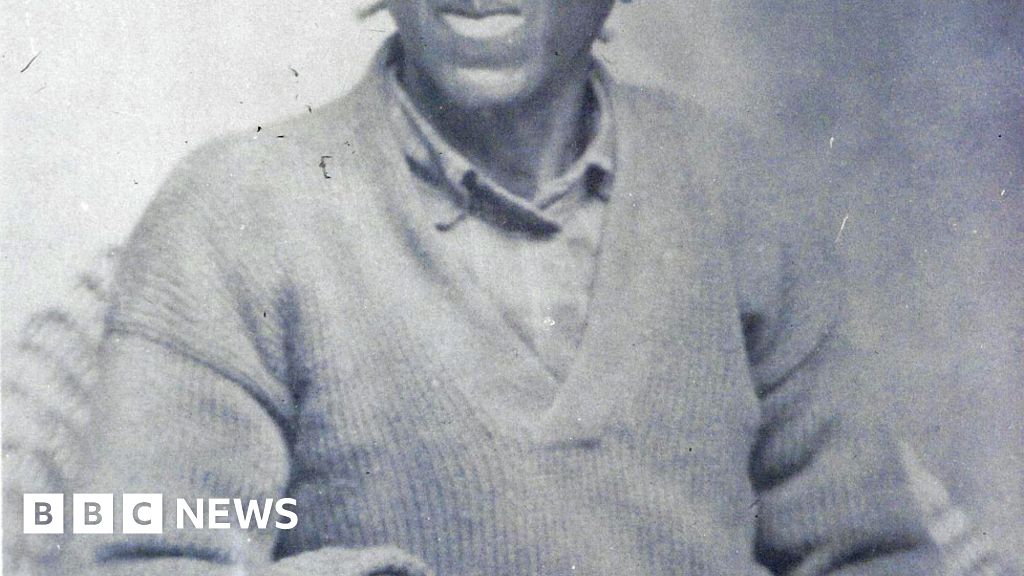
The transatlantic slave trade might seem like something from a distant and barbaric era - but a historian has found evidence its last survivor was alive in living memory.
Hannah Durkin, at the University of Newcastle, had previously identified the last living person from Africa to have been captured and sold into slavery in the United States as a woman called Redoshi Smith, who died in 1937.
But she has now discovered another former slave, Matilda McCrear, who died in Selma, Alabama, in January 1940, aged 83, making her the last known living link among those slaves abducted from Africa.
Her 83-year-old grandson, Johnny Crear, had no idea about his grandmother's historic story.
In the 1960s, he had witnessed violence against civil rights marchers in Selma, where protesters had been addressed by Dr Martin Luther King.
On discovering his grandmother had been enslaved, he told BBC News: "I had a lot of mixed emotions.
"I thought if she hadn't undergone what had happened, I wouldn't be here.
"But that was followed by anger."
Matilda had been captured by slave traders in West Africa at the age of two, arriving in Alabama in 1860 on board one of the last transatlantic slave ships.
With her mother Grace, and sister Sallie, Matilda had been bought by a wealthy plantation owner called Memorable Creagh.
Dr Durkin says there must have been a dreadful sense of separation, loss and disorientation for these families. Matilda's mother had lost the father of her children and two other sons left behind in Africa.
And in the US she had been powerless to stop two daughters being taken from her, sold to another owner and never seen again.
Matilda, Grace, and Sallie tried to escape the plantation soon after they arrived but they were recaptured.
The abolition of slavery, in 1865, brought emancipation but Matilda's family still worked the land, trapped in poverty as share-croppers. It seems Grace did not really ever learn much English.
"But Matilda's story is particularly remarkable because she resisted what was expected of a black woman in the US South in the years after emancipation," Dr Durkin says.
"She didn't get married.
"Instead, she had a decades-long common-law marriage with a white German-born man, with whom she had 14 children."
It seems likely he was Jewish, Ms Durkin says, making their relationship "astonishing" for its era in its crossing of boundaries of race, class, religion and social expectation.
And Matilda changed her name from Creagh, the slave owner, to McCrear.
She was remarkably strong willed, Ms Durkin says.
"Even though she left West Africa when she was a toddler, she appears throughout her life to have worn her hair in a traditional Yoruba style, a style presumably taught to her by her mother," says Dr Durkin, whose research is published in the journal, Slavery and Abolition.
She also carried the facial markings from a traditional rite in Africa.
In her 70s, Matilda set out on another journey, travelling for 15 miles on dirt roads to a county courthouse to make a claim for compensation for her enslavement.
By then, she was one of a small number of surviving slaves from Africa who seem to have made contact with each other.
There was a settlement near Mobile, Alabama, of descendants of slaves from the same ship as Matilda, where the West African language of Yoruba was spoken.
Her claim was dismissed - but, in the Deep South of the 1930s, such a provocative idea, reparation for slavery, attracted local press attention and the interviews helped to fill in some details of Matilda's life.
When she died, however, with the still raw history of slavery remaining a difficult and dangerous topic, there were no obituaries - and no recognition.
"There was a lot of stigma attached to having been a slave," Ms Durkin says.
"The shame was placed on the people who were enslaved, rather than the slavers."
Her grandson says: "I was born in the same house where she died."
And although his family knew Matilda was originally from Africa, nothing much was spoken about her life.
"This fills in a lot of the holes that we have about her," he says of Ms Durkin's research.
But the cruelty Matilda faced is no surprise to him.
"From the day the first African was brought to this continent as a slave, we've had to fight for freedom," he says.
He grew up in an era of racial segregation - and his parents put a huge emphasis on education as the way to escape poverty and the "key to changing the world".
But the lack of knowledge about his grandmother reflects how much of the history of slavery still lies below the surface.
"It doesn't surprise me that she was so rebellious," Mr Crear says.
And there were many hidden stories of slaves fighting back and resisting their captors.
In the civil rights protests, they were singing songs with roots in the years of slavery, tapping into the same "continuous struggle and fight" and pursuing the same the goals of "real freedom and equality" as his independent-minded grandmother.
"It's refreshing to know she had the kind of spirit that's uplifting," he says.
But it is still sobering to think how the glamour of 1940s Hollywood overlapped so directly with the lives of women and children brought in chains from Africa.
"last" - Google News
March 25, 2020 at 08:32AM
https://ift.tt/2wAlX34
Last survivor of transatlantic slave trade discovered - BBC News
"last" - Google News
https://ift.tt/2rbmsh7
Shoes Man Tutorial
Pos News Update
Meme Update
Korean Entertainment News
Japan News Update
Bagikan Berita Ini















0 Response to "Last survivor of transatlantic slave trade discovered - BBC News"
Post a Comment